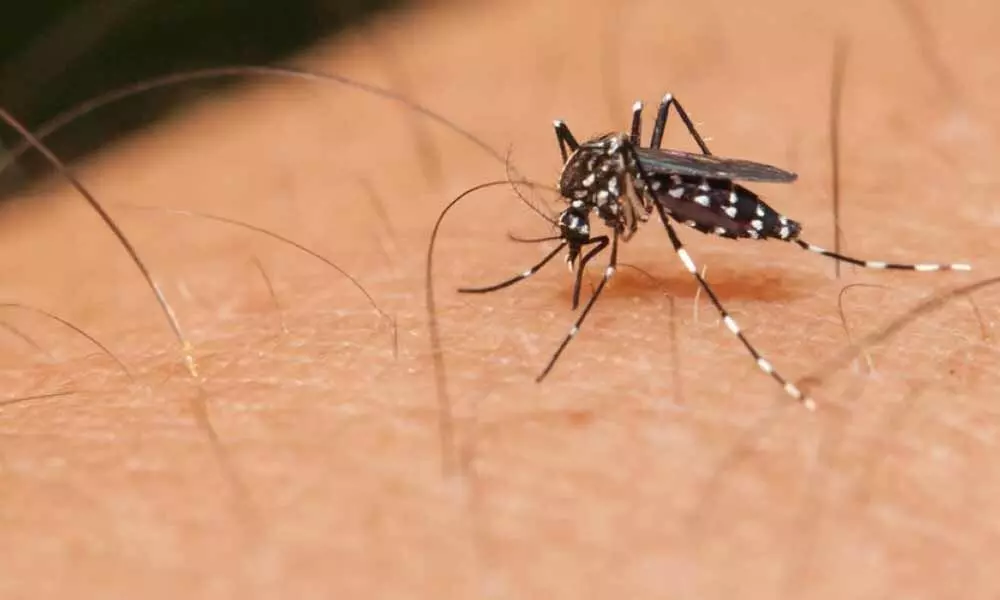Tips to prevent mosquito-borne disease

For representational purpose
During this time mosquito-borne diseases like malaria, dengue, Chikungunya are at the peak.
As refreshing as it may feel, the onset of the rains brings with them a host of diseases and infections that can pose a serious range of health threats for you and your family. The risk of being exposed to multiple viruses, bacteria and other infections is two times higher during the monsoon than in any other season. During this time mosquito-borne diseases like malaria, dengue, Chikungunya are at the peak. Whether you are staying at home or travelling, preventing mosquito bites is the best way to reduce the risk of mosquito-borne disease. Mosquitoes can be found in different environments and you may not always notice when you have been bitten.
When a mosquito feeds on blood, it also swallows viruses or parasites living in the blood. These viruses and parasites can be transferred to the next person the mosquito bites through its saliva. Any disease that is spread in this way from mosquito to human is known as a 'mosquito-borne disease'. These mosquito-borne diseases can cause immense suffering for humans.
We should take as many precautions as possible to protect ourselves and our family from being bitten by mosquitos. Bites can occur at any time between dusk and dawn, but some are more active during the daytime. Mosquito-borne diseases can lead to a series of symptoms including fever, body aches, nausea, vomiting, severe headaches, muscle pain, joint pain, rashes etc. Most people don't get sick and have only mild symptoms after being bitten by an infected mosquito.
Here are the ways to protect yourself and your loved ones from mosquito bites.
• Wear protective clothing-mosquitoes can bite on any area of exposed skin. It is recommended to wear long-sleeved clothing that is light in colour to protect yourself against mosquito bites
• Sleep with insect net-Preventing mosquito bites can be done with the use of an insect net over the beds.
• Use mosquito repellents -apply insect repellents to the exposed areas of skin. Be careful and wash your hands after application, do not touch your eyes and mouth.
• Use plug-in mosquito zappers, which release insecticide at low levels for several hours.
• Prevent mosquitoes from entering your home by ensuring insect screens over the window and doors
• Trim green space- Keeping your grass cut and your yard free of leaf litter gives mosquitos fewer places to hide and breed
• Mosquitoes lay their eggs in water, so regularly clean of any stagnant water around your home such as water that has collected in flower pots, unused tires, trash cans, rain gutters. Make sure rainwater tanks and septic tank vents are screened and the gutters are not blocked.
• Clean air conditioner drip trays regularly to ensure free of stagnant water
• Dispose domestic waste, empty bottles, cans, food waste into a covered bin to avoid mosquitos
It is essential to follow the above tips to keep yourself and your family safe from mosquito bites which could cause mosquito-borne diseases. Vaccines can prevent some mosquito-borne illnesses such as dengue fever, yellow fever, malaria. If you have been bitten by mosquitos and showing any symptoms mentioned above, seek timely and proper medical advice from the doctor to avoid any delay in treatment which could lead to potentially fatal complications.
By Dr. Vinod Kumar Reddy, Consultant - Internal Medicine, Columbia Asia Hospital Whitefield














